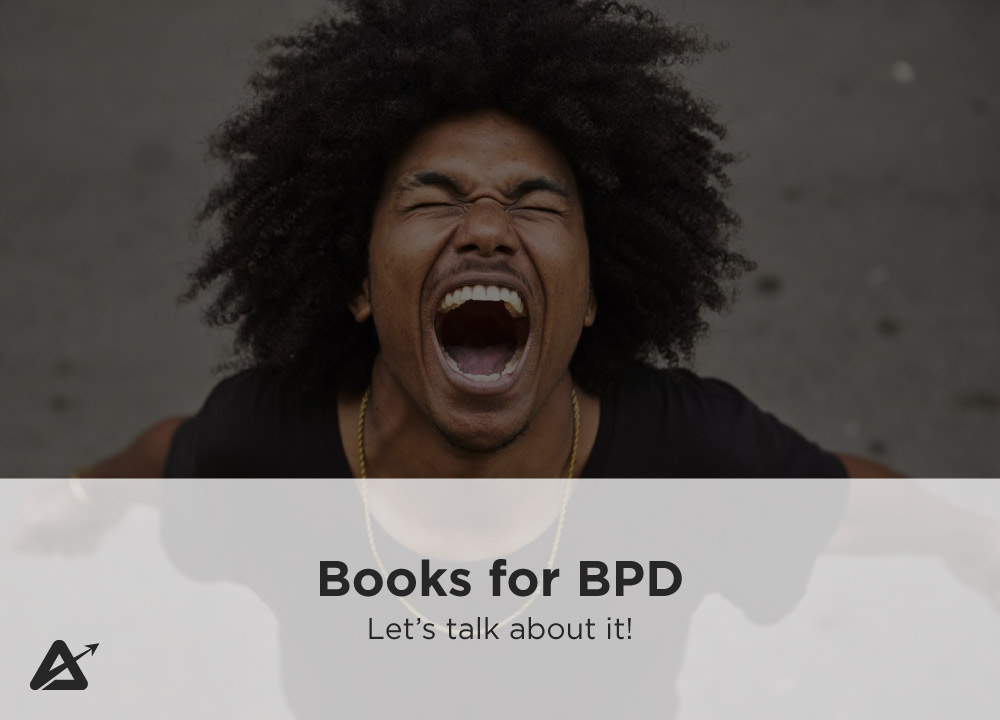Hy, dear readers if you are looking for best books for BPD from experienced people, then you are on the right blog now. As a user of Best Books for BPD, I can provide you with a detailed review and insights into its benefits and usage.
Borderline Personality Disorder (BPD) is a complex mental health condition that affects millions of individuals worldwide. While therapy and support are crucial, books can also play a significant role in understanding and managing BPD. They provide valuable insights, practical strategies, and personal narratives that can empower individuals with BPD to navigate their journey toward healing and self-discovery.
In this blog post, we’ll explore five exceptional books. That has been recommended by mental health professionals and individuals with lived experiences of BPD.
Here are five exceptional best books for BPD
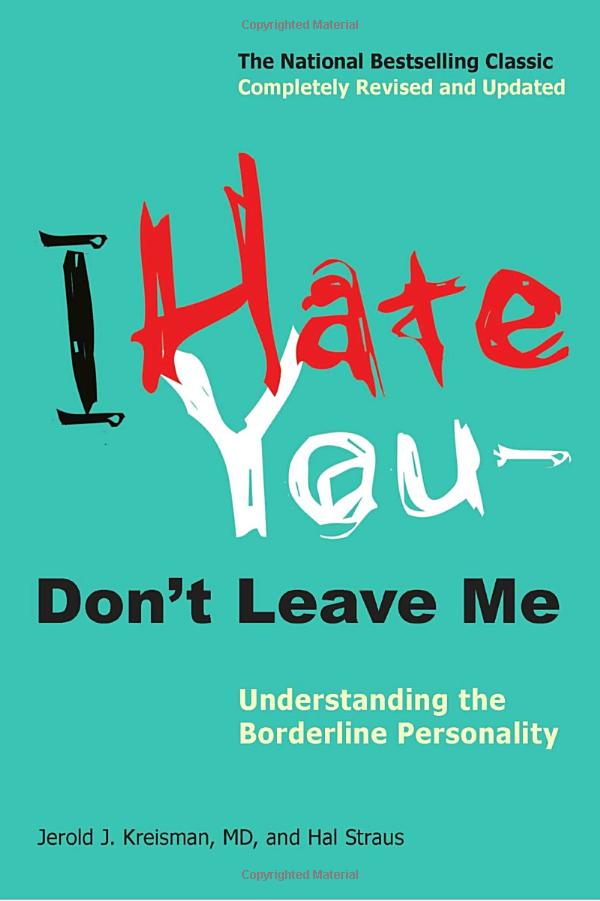 | “I Hate You – Don’t Leave Me” by Jerold J. Kreisman and Hal Straus I Hate You – Don’t Leave Me” is a highly regarded classic in the field of BPD. This book combines compassion, understanding, and expertise to offer an insightful exploration of BPD’s symptoms, causes, and treatment options. Through real-life case studies, it provides practical advice on managing intense emotions, building healthier relationships, and developing effective coping mechanisms. |
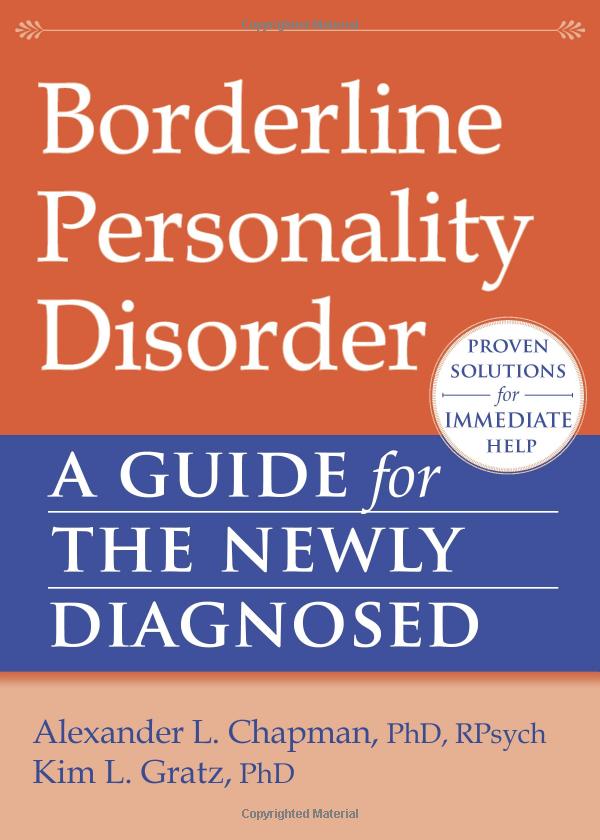 | “Borderline Personality Disorder: A Guide for the Newly Diagnosed” by Alexander L. Chapman Written specifically for individuals who have recently received a diagnosis of BPD, this guide by Alexander L. Chapman is a valuable resource. It offers an accessible introduction to BPD, helping readers understand the disorder’s impact on thoughts, emotions, and behaviors. The book emphasizes self-compassion and provides practical strategies for managing distress, fostering healthy relationships, and developing a personalized treatment plan. |
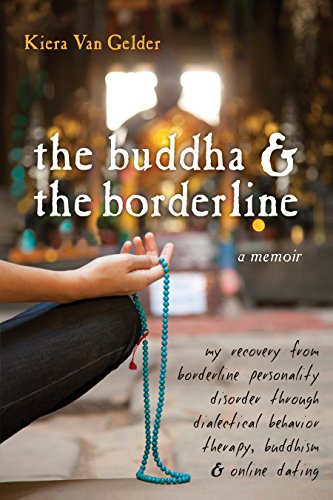 | “The Buddha and the Borderline” by Kiera Van Gelder “The Buddha and the Borderline” is a captivating memoir that chronicles Kiera Van Gelder’s personal journey with BPD. Blending her experiences with Buddhist philosophy and therapy, she shares her triumphs and struggles with honesty and vulnerability. This memoir offers inspiration and hope, highlighting the possibilities of recovery and the transformative power of self-discovery. |
Best books for BPD
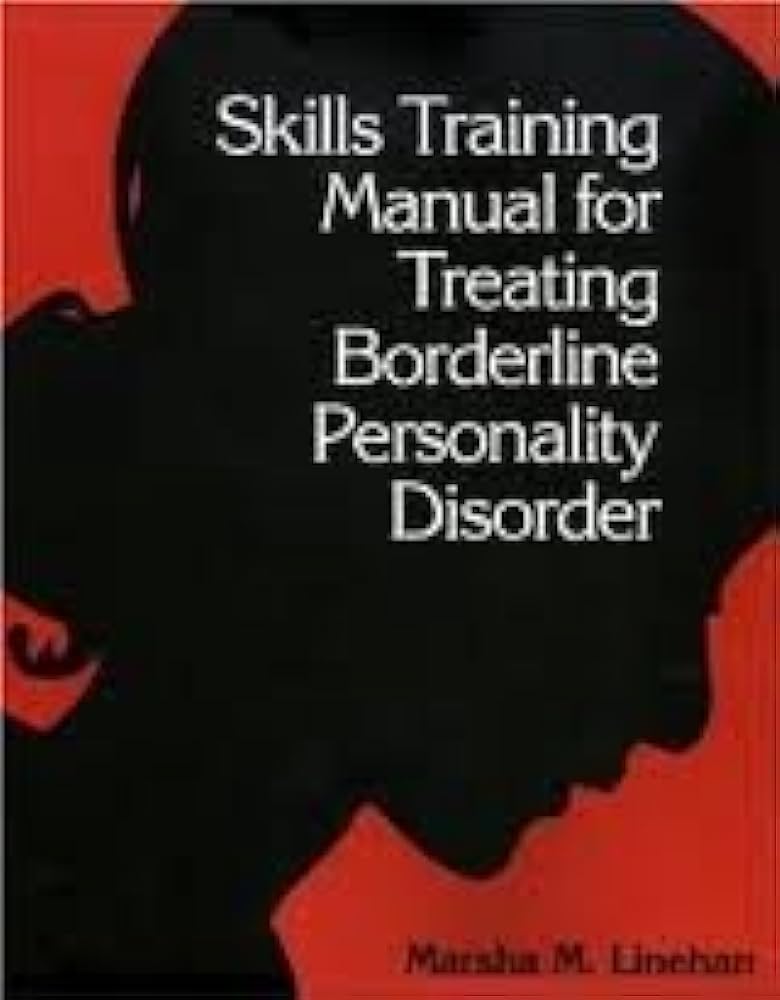 | “Skills Training Manual for Treating Borderline Personality Disorder” by Marsha M. Linehan Developed by Marsha M. Linehan, the creator of Dialectical Behavior Therapy (DBT), this skills training manual is a comprehensive resource for therapists and individuals with BPD alike. It presents a structured program of practical skills and techniques to manage emotions, improve relationships, and reduce self-destructive behaviors. The book includes worksheets, exercises, and step-by-step instructions to facilitate learning and skill acquisition. |
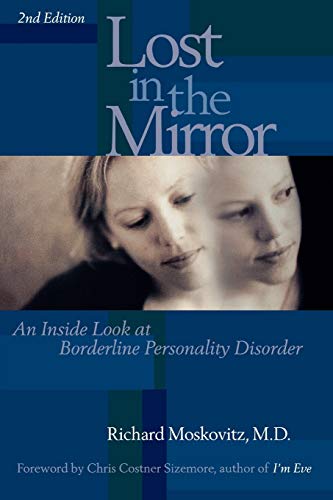 | “Lost in the Mirror: An Inside Look at Borderline Personality Disorder” by Richard A. Moskovitz “Lost in the Mirror” offers a compassionate and comprehensive exploration of BPD from both a clinical and personal perspective. Dr. Richard A. Moskovitz draws upon his professional expertise and his personal experience of having a sister with BPD to provide a deep understanding of the disorder. The book covers various aspects, including the origins of BPD, effective treatment approaches, and strategies for managing relationships with individuals with BPD. |
Are there any other books for BPD other than the 5 best books?
Yes, there are many other books available on borderline personality disorder (BPD) besides the commonly recommended “5 best books.” While the specific list of recommended books may vary depending on individual preferences, here are some additional books that you might find helpful:
- “The Dialectical Behavior Therapy Skills Workbook for Anxiety: Breaking Free from Worry, Panic, PTSD, and Other Anxiety Symptoms” by Alexander L. Chapman and Kim L. Gratz
- “Borderline Personality Disorder: A Guide for the Newly Diagnosed” by Alexander L. Chapman
- “Beyond Borderline: True Stories of Recovery from Borderline Personality Disorder” by John G. Gunderson and Perry D. Hoffman
- “BPD and Me: My Journey of Recovery from Borderline Personality Disorder” by Sharon DeVinney, Ph.D.
- “The Buddha and the Borderline: My Recovery from Borderline Personality Disorder through Dialectical Behavior Therapy, Buddhism, and Online Dating” by Kiera Van Gelder
- “Borderline Personality Disorder Demystified: An Essential Guide for Understanding and Living with BPD” by Robert O. Friedel, M.D.
- “The Borderline Personality Disorder Survival Guide: Everything You Need to Know About Living with BPD” by Alexander L. Chapman and Kim L. Gratz
- “Skills Training Manual for Treating Borderline Personality Disorder” by Marsha M. Linehan
- “I Hate You, Don’t Leave Me: Understanding the Borderline Personality” by Jerold J. Kreisman and Hal Straus
- “Loving Someone with Borderline Personality Disorder: How to Keep Out-of-Control Emotions from Destroying Your Relationship” by Shari Y. Manning
Remember to consider your specific needs and preferences when choosing a book on BPD. It’s also a good idea to consult with mental health professionals or support groups to get recommendations tailored to your situation.
Books for Those Diagnosed With BPD
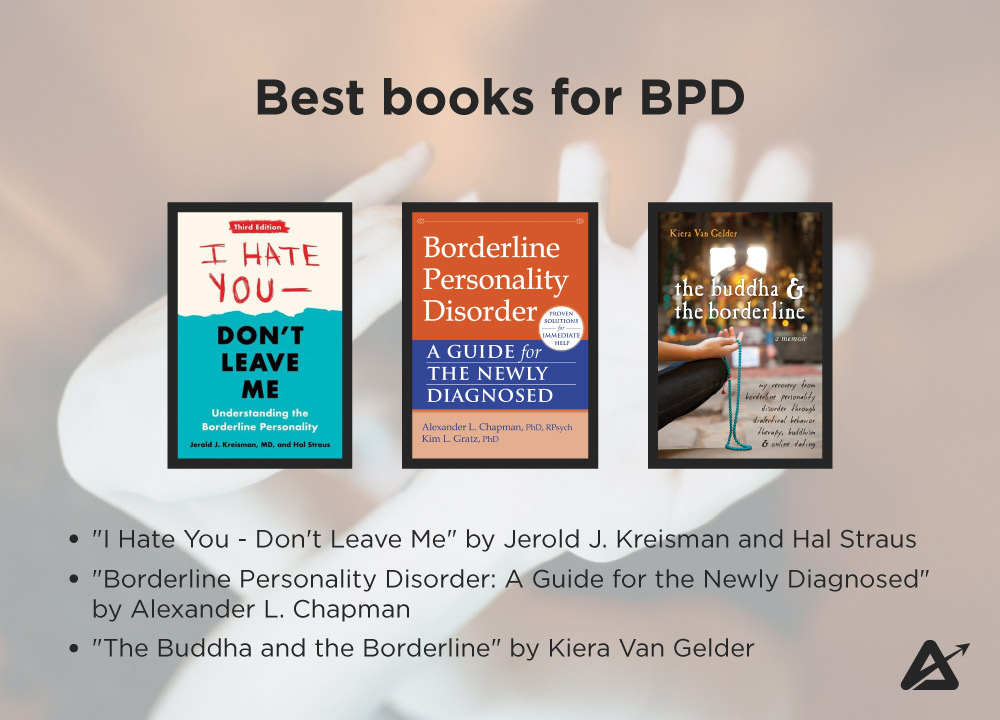
- “I Hate You—Don’t Leave Me” by Jerold J. Kreisman and Hal Straus
- “Borderline Personality Disorder Demystified” by Robert O. Friedel
- “The Borderline Personality Disorder Survival Guide” by Alexander L. Chapman and Kim L. Gratz
- “Mindfulness for Borderline Personality Disorder” by Blaise Aguirre and Gillian Galen
- “Loving Someone with Borderline Personality Disorder” by Shari Y. Manning
- “Borderline Personality Disorder: New Perspectives on a Stigmatizing and Overused Diagnosis” by Jacqueline Simon Gunn
- “The Dialectical Behavior Therapy Skills Workbook for Anxiety: Breaking Free from Worry, Panic, PTSD, and Other Anxiety Symptoms” by Alexander L. Chapman and Kim L. Gratz
- “Girl in Need of a Tourniquet” by Merri Lisa Johnson
- “The Buddha and the Borderline” by Kiera Van Gelder
- “Lost in the Mirror: An Inside Look at Borderline Personality Disorder” by Richard A. Moskovitz
Best Books for Loved Ones of Those With BPD
If you have a loved one with Borderline Personality Disorder (BPD), it’s essential to educate yourself about the condition and understand how to provide support. While I can’t provide a definitive list of the “best” books, I can recommend a few titles that are commonly suggested for loved ones or individuals with BPD. Remember that each person’s experience with BPD is unique, so it’s important to find resources that resonate with you and your specific situation. Here are some books you may find helpful:
- “Stop Walking on Eggshells” by Paul T. Mason and Randi Kreger
- “I Hate You–Don’t Leave Me” by Jerold J. Kreisman and Hal Straus
- “Loving Someone with Borderline Personality Disorder” by Shari Y. Manning
- “The Essential Family Guide to Borderline Personality Disorder” by Randi Kreger
- “Sometimes I Act Crazy” by Jerold J. Kreisman and Hal Straus
These books offer insights into BPD, strategies for effective communication, and guidance on establishing healthy boundaries. Additionally, seeking professional help, such as therapy or support groups specifically tailored for the loved ones of individuals with BPD, can be beneficial. Remember to consult with mental health professionals for personalized advice and recommendations based on your specific circumstances.
Why should us read books for BPD?
Reading books can be beneficial for individuals with Borderline Personality Disorder (BPD) for several reasons:
Education and Understanding: Books can provide valuable insights into BPD, helping individuals gain a deeper understanding of the disorder, its symptoms, and its impact on their lives. Understanding the underlying causes and mechanisms of BPD can be empowering and aid in self-awareness.
Self-Help and Coping Strategies: Many books on BPD offer practical advice and strategies for managing symptoms and improving overall well-being. They can provide tools for regulating emotions, building healthier relationships, and developing effective coping mechanisms.
Validation and Support: Reading about others’ experiences with BPD can be validating and comforting, making individuals feel less alone in their struggles. Books that feature personal stories and firsthand accounts can provide a sense of community and support.
Psychoeducation and Therapy Support: Books can complement therapy by serving as a psychoeducational resource for individuals with BPD and their loved ones. They can reinforce the concepts and techniques learned in therapy, helping individuals apply them in their daily lives.
Inspiration and Hope: Reading success stories of individuals who have overcome or effectively managed their BPD can provide inspiration and instill hope. Books can offer a positive perspective and remind individuals that recovery and a fulfilling life are possible.
Empowerment and Self-Reflection: Books encourage self-reflection and introspection, allowing individuals with BPD to gain insights into their own thoughts, feelings, and behaviors. They can provide tools for self-empowerment and personal growth.
When selecting books, it’s essential to consider reputable sources, evidence-based approaches, and recommendations from mental health professionals. Additionally, it’s crucial to remember that books should be used as a supplement to professional support and not as a substitute for therapy or medical advice.
When is the right time to read books for BPD?
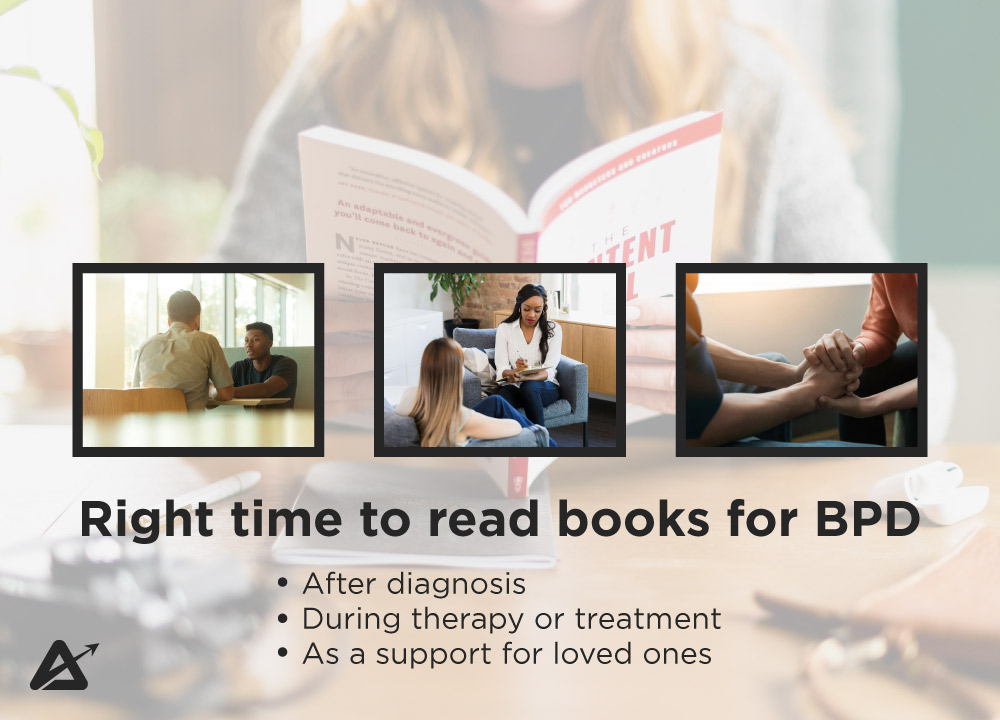
Reading books about Borderline Personality Disorder (BPD) can be beneficial at any stage of your journey, whether you have recently been diagnosed, are in the process of seeking treatment, or are already managing your condition. Here are a few suggestions on when reading books about BPD can be particularly helpful:
After diagnosis: If you have recently been diagnosed with BPD, reading books on the subject can provide you with valuable information and insights into the disorder. It can help you understand the symptoms, causes, and treatment options available. This knowledge can empower you to take an active role in managing your condition.
During therapy or treatment: If you are already receiving therapy or treatment for BPD, reading books can supplement your ongoing sessions. It can deepen your understanding of the disorder and provide additional strategies, coping mechanisms, and self-help techniques to support your recovery. Discussing relevant books with your therapist can also enhance your therapy experience.
As a support for loved ones: If you have a loved one who has been diagnosed with BPD, reading books about the disorder can help you gain insight into their experiences and challenges. It can improve your understanding of their condition, offer guidance on how to provide support and suggest strategies for building healthier relationships.
Remember, it’s essential to approach reading books about BPD as a complementary resource to professional guidance and support. If you have concerns or questions about your mental health, it’s always a good idea to consult with a qualified mental health professional who can provide personalized advice and treatment recommendations.
The benefit of reading books for BPD
Books, especially those focused on personal development, psychology, and mental health, can provide insights into different aspects of BPD. By reading about others’ experiences and perspectives, individuals with BPD can gain a better understanding of their own thoughts, emotions, and behaviors. This self-awareness can be an essential step toward managing and coping with BPD symptoms.
Emotional regulation
BPD is often characterized by intense and fluctuating emotions. Reading books that delve into emotional intelligence, mindfulness, or coping strategies can provide individuals with BPD valuable tools to regulate their emotions. Learning about different techniques and perspectives can help them identify and manage intense emotions in healthier and more constructive ways.
Validation and normalization
BPD can be a stigmatized and misunderstood condition. Reading books that explore BPD, memoirs, or fictional works that feature characters with BPD can offer individuals a sense of validation and normalization. Recognizing that others have similar experiences and struggles can reduce feelings of isolation and help foster a sense of belonging.
Cognitive restructuring
BPD is often associated with cognitive distortions and negative thinking patterns. Reading self-help books that focus on cognitive-behavioral therapy (CBT) or other evidence-based approaches can assist individuals in challenging and reframing negative thoughts. By gaining new perspectives and learning practical techniques, they can gradually reshape their thinking patterns and develop more positive and adaptive beliefs.
Skill development
Many books offer practical skills and strategies for managing BPD symptoms and improving interpersonal relationships. These resources may cover topics such as effective communication, setting boundaries, assertiveness, problem-solving, and conflict resolution. By incorporating these skills into their daily lives, individuals with BPD can enhance their relationships and overall well-being.
It’s important to note that reading books alone might not be sufficient for managing BPD. Professional support, such as therapy or counseling, is crucial for developing a comprehensive treatment plan. However, books can serve as a valuable supplement to therapy and a means of self-education and empowerment.
Conclusion
While books cannot replace professional help, they can serve as invaluable companions on the journey to understanding and managing Borderline Personality Disorder. The five books discussed in this blog post provide a range of perspectives, practical strategies, and personal narratives that can empower individuals with BPD, their loved ones, and mental health professionals. Remember, everyone’s experience with BPD is unique, so finding the books that resonate with you is essential. With knowledge, compassion, and support, individuals with BPD can navigate the path toward healing and lead fulfilling lives.

